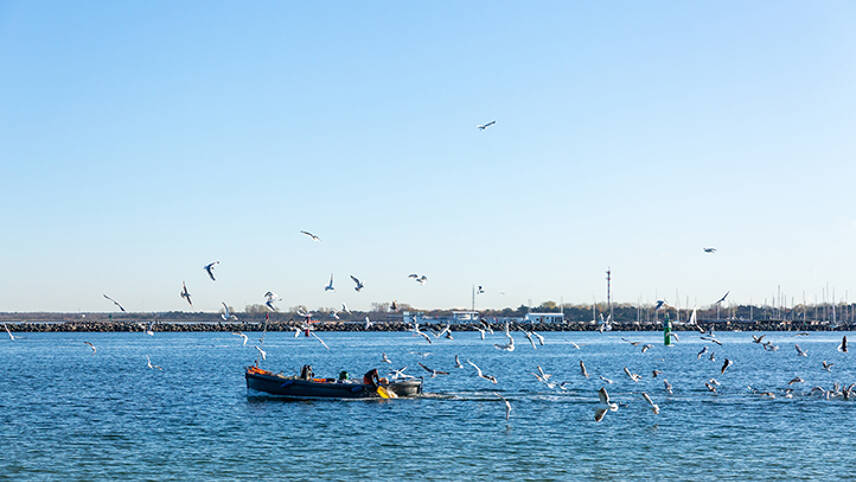Register for free and continue reading
Join our growing army of changemakers and get unlimited access to our premium content

Tesco already does not allow tuna caught using fish aggregating devices (FADs) and is a member of the Global Tuna Alliance (GTA).
Tesco has joined the Sustainable Fisheries Partnership (SFP), following the completion of an independent audit of the risks to ocean wildlife in the fisheries that supply seafood to the retailer.
The audit was based on bycatch risks and assessments disclosed by the retailer in the Ocean Disclosure Project. It found “high potential risks” in tuna fisheries that use fish aggregating devices (FADs), Alaskan salmon gillnet fisheries, Argentine shrimp and Indonesian prawn fisheries, Icelandic cod gillnet fisheries and Canadian lobster pot and trap fisheries. All of these parts of the value chain were deemed to pose a risk to other marine life.
Tesco will now join the SFP in a bid to implement 100% observer coverage on vessels in the supply chain, and to promote more sustainable practices.
“We’re pleased to partner with Sustainable Fisheries Partnership to protect ocean wildlife and drive progress across the retail industry on this critical issue in seafood sustainability,” said Anna Turrell, Head of Environment at Tesco.
“Reducing fisheries bycatch is a vital element of our ‘seascape’ or ecosystem-based approach to promote healthy fish stocks and mitigate the impacts of fishing on the wider marine environment. This report is an important step on that journey, and we’re already working with our suppliers to take action on the issues raised, including implementing 100% observer coverage on vessels in our supply chain,”
Tesco will prioritise the aforementioned fisheries for action. Tesco already does not allow tuna caught using fish aggregating devices (FADs) and is a member of the Global Tuna Alliance (GTA).
The audits were completed by the Royal Society for the Protection of Birds and Whale and Dolphin Conservation. The study examined the threats to sharks and rays, seabirds, marine mammals and sea turtles.
Bycatch audits are a key part of SFP’s Protecting Ocean Wildlife initiative, an international, industry-led effort to address marine wildlife bycatch, especially endangered, threatened and protected (ETP) species. The initiative engages retailers, suppliers and the seafood industry to reduce bycatch fisheries globally.
“As a result of the audit, Tesco can prioritise areas for change and use it as an example to encourage other retailers to take similar action to protect ocean wildlife through their sourcing practices,” said Ian Rolmanis, global markets deputy director at Sustainable Fisheries Partnership.
“Tesco’s ambition on marine conservation and specific focus on fisheries bycatch will make a big difference in ocean health and increasing industry adoption of sustainable practices.”
Analysis of how 33 major European food retailers are working to make fish supply chains more sustainable found that three-quarters have a “near-total” lack of strong policies to safeguard the environment and improve animal welfare.
Conducted by the Charging Markets Foundation and Feedback, the ‘Floundering Around’ report assesses 33 of Europe’s largest food retailers on the sustainability policies they have implemented for sourcing farmed fish – as well as how much information they publicly provide on fish and fish food supply chains. Also assessed were the ways in which the retailers communicated sustainability-related information on fish to consumers.
On sourcing, the report deems 76% of the retailers to have a “near-total lack” of “substantive policies” to tackle the most pressing environmental and ethical issues in the supply chain.
Progress was found to be weakest in the field of eliminating wild-caught fish from fish feed, with no retailer providing the NGOs with a time-bound target for elimination plus a credible delivery plan. The report reiterates past research revealing that around one-fifth of the world’s marine fish catch made annually is converted into fish meal and fish oil (FMFO)`, used to feed farmed fish and animals. West African Waters have been reportedly over-exploited for the production of FMFO.
UK charities are also calling on the Government to “climate-proof” the fishing sector, finding that fisheries are currently contributing to emissions more than they should under a net-zero trajectory and are acutely exposed to future climate risks due to poor support for nature restoration and adaptation.


Please login or Register to leave a comment.